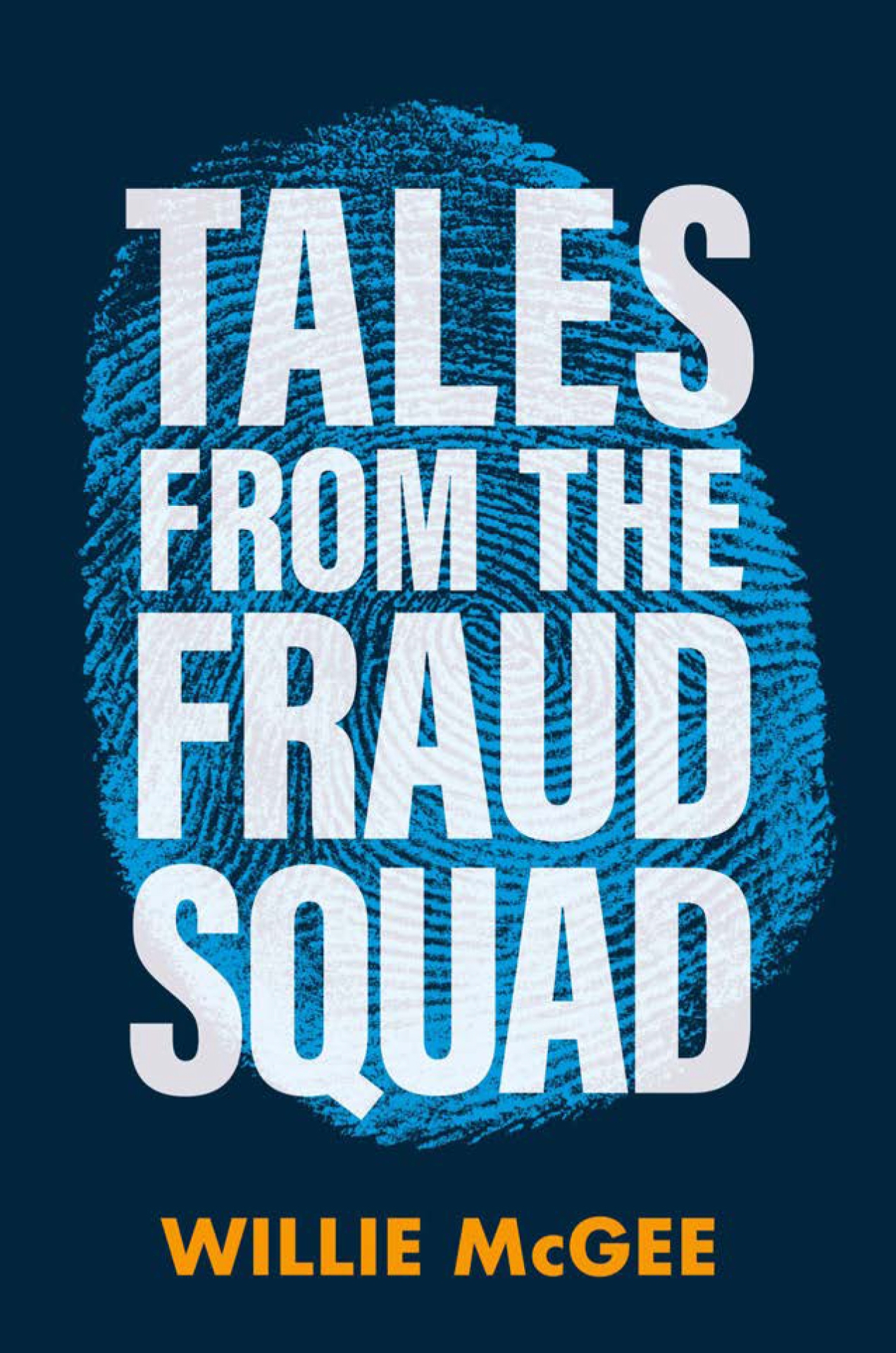
Author and former garda Willie McGee
Having taken a more than usual interest in crime and the court system over my 45 year working career as a journalist, I was looking forward to Willie McGee’s stories of working with the gardaí.
Added to the mix was the fact that I had spoken to him during his time as a garda in Kildare when he was living in Leixlip.
It is not surprising then that Tales from the Fraud Squad has a number of stories where part of the action takes place in Kildare.
While many criminals will not like to be reminded about their mistakes, quite a number of gardaí get a rap over the knuckles, including a former member of the force who opted to use Willie McGee’s name to get tickets for the Galway races.
It is one of the lesser crimes told in this book.
Willie McGee was born in 1947, the fifth child of Kathleen (née O’Malley) and Charlie, a postman of many talents and an All Ireland winning handballer.
His father was quite strict on a number of fronts and the author notes that on one occasion, he refused to let his own daughter into the hall for a dance or concert because she did not have her sixpence.
Willie grew to 6ft 2ins and might have joined the Irish Army as a cadet but they refused him because he had dentures.
He joined the gardaí with the encouragement and help of his godfather, a Garda superintendent, and passed out in 1967.
A lover of the sport of boxing he became a well known Mayo senior footballer and was noted for scoring four goals in the All Ireland U21 Mayo v Kerry final in 1967.
He played for Connacht in the Railway Cup in 1969, on the same team as Dermot Earley and Seamus Hoare, the Donegal goalkeeper, who lived in Leixlip for many years, recently passing away.
Willie McGee reckons there is something in the argument that Mayo's lack of success in the All Ireland senior title was because they were not cynical enough to break rules which others did and were not punished by referees and linesmen.
He recalled playing in a Jimmy Magee All Star game in Clane and annoyed the late RTÉ broadcaster after upending him in a tackle.
To anyone who has believed the treatment of fraudsters is very lenient in Ireland, Tales from the Fraud Squad, will, I would argue, confirm it.
That is not to blame the gardaí. They are part of an overall culture and legal framework.
But, as Willie McGee notes, people could and did take their own life after being defrauded, including a farmer from Cavan who lost his land.
Many of the fraudsters were highly intelligent and catching them was not an easy task.
When he arrived at the Fraud Squad, there was no training for its members. You learned on the job. In addition, the legislation was weak. They were still using the Banker’s Book of Evidence Act 1879.

Light punishment
He notes that punishment for major frauds was relatively light and that some cases were not prosecuted because the victims were too embarrassed to have the matter publicly aired.
He runs us through the Tony Taylor investment case and noted that embarrassment was a factor in the Vincent de Paul Society not being anxious to have Taylor prosecuted for losing €185,000 of money donated to it for the Sunshine Home.
Taylor, too, was in denial and did not want to be seen to have deprived the Society of money.
While Taylor was prosecuted for fraud in relation to £600,000, they estimated around £1.7 million had gone missing as Taylor had moved millions offshore to tax havens for wealthy clients who did not want to be exposed. The author noted that Taylor had advised senior civil servants who drafted guidelines which became, long overdue, the Investment Intermediaries Act of 1995, introduced to protect investors.
Willie McGee left the gardaí in 2002, retiring as a detective superintendent and as the second in command of the Garda Bureau of Fraud Investigation, and took up a post with Axa Insurance. He noted that an Axa survey found that 51% of 1,200 respondents said that they would make a dishonest claim.
It should not come as a surprise because many fraudsters got little or no punishment if stopped before the crime took place, despite their intention to steal.
The book is not just about crime. Willie McGee writes about his own family and his recovery from a stroke in recent years.
The book is not just about crime and many fascinating cases, including a chat with the late Charlie Haughey, a rogue priest and a ‘nun’ who was deemed to be too pretty.
He is donating the profits from the book to the Irish Heart Foundation.
In 2014, he was awarded the Garda Sports award in 2014. He was awarded the Western People Hall of Fame award in 2017.
Tales from the Fraud Squad By Willie McGee is published by Merrion Press. Henry Bauress is a retired Leinster Leader journalist.
Subscribe or register today to discover more from DonegalLive.ie
Buy the e-paper of the Donegal Democrat, Donegal People's Press, Donegal Post and Inish Times here for instant access to Donegal's premier news titles.
Keep up with the latest news from Donegal with our daily newsletter featuring the most important stories of the day delivered to your inbox every evening at 5pm.